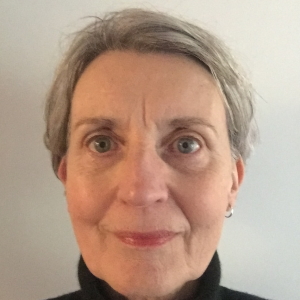Biography
After gaining an undergraduate degree in mathematics at Lancaster University, and a PGCE at Keele University, Christina initially worked as a mathematics teacher. She then trained in teaching children with a specific learning difficulty (SpLD) at Bangor University, and worked as a tutor for children with dyslexia, contributing to a teacher training course (SpLD) at Birmingham University. She later become a learning support teacher in a secondary school, working with children with special educational needs and disabilities. During this time, Christina gained a professional certificate in research methods at Birmingham University and was awarded a DfES best practice research scholarship to explore questioning and pedagogy in mathematics. She completed the CAME (Cognitive Acceleration in Mathematics Education) course at Keele University, qualifying as a coordinator and subsequently becoming a visiting tutor on the programme for two years. Later, she gained a Master’s degree in hearing impairment and is currently a peripatetic teacher of the deaf, supporting deaf children and their families. She is a part-time PhD student at Keele University, exploring collaboration in health and education service provision for deaf children.
Research and scholarship
The COHEAR study
Exploring practitioners’ views of collaboration in health and education service provision for school-age deaf children: a qualitative study.
Study summary
Children’s hearing loss impacts on their communication, learning and social skills. Most deaf children have hearing parents, who have no previous experience of deafness and need professional guidance around specific interventions such as hearing technology, communication choices and special education. Most school-age deaf children in the UK attend mainstream schools and, as deafness is a low-incidence disability, schools are also likely to require specialist input. However, over the last decade, service provision for deaf children has been affected by declining numbers of specialist practitioners and, more recently, the COVID-19 pandemic.
There is consensus of the importance of collaboration across health, education and social services, in partnership with families, to best support deaf children but there is less known about cross-sector service provision is conceptualised. Understandings of collaboration vary and terminology is used inconsistently. Collaborative practice is not a universal fit and needs to be explored in the context of local service delivery systems.
This study will use qualitative methods, with semi-structured interviews, to explore practitioners’ views of collaboration in health and education service provision for school-age deaf children in the UK county of Shropshire. Findings will be compared with theoretical models of collaboration, to establish a contextual understanding of the nature of collaboration in this setting, and identify potential areas for improvement.
Patient and public involvement and engagement (PPIE) in this study is provided by a project advisory group. Towards the end of the study, stakeholder engagement workshops will be held with parents of deaf children in Shropshire, to review findings and generate ideas for dissemination. Outputs will include a framework to support and improve collaboration in health and education service provision for school-age deaf children.
School of Medicine
David Weatherall building
University Road
Keele University
Staffordshire
ST5 5BG
Tel: +44 (0) 1782 733937
Email: fmhs.facilities@keele.ac.uk
Admissions enquiries: enquiries@keele.ac.uk
The Clinical Education Centre
Keele University
Clinical Education Centre
University Hospitals of North Midlands NHS Trust
Newcastle Road
Stoke-on-Trent
Staffordshire
ST4 6QG
Email us: services.cecreception@keele.ac.uk
CEC general enquires: 01782 731876


